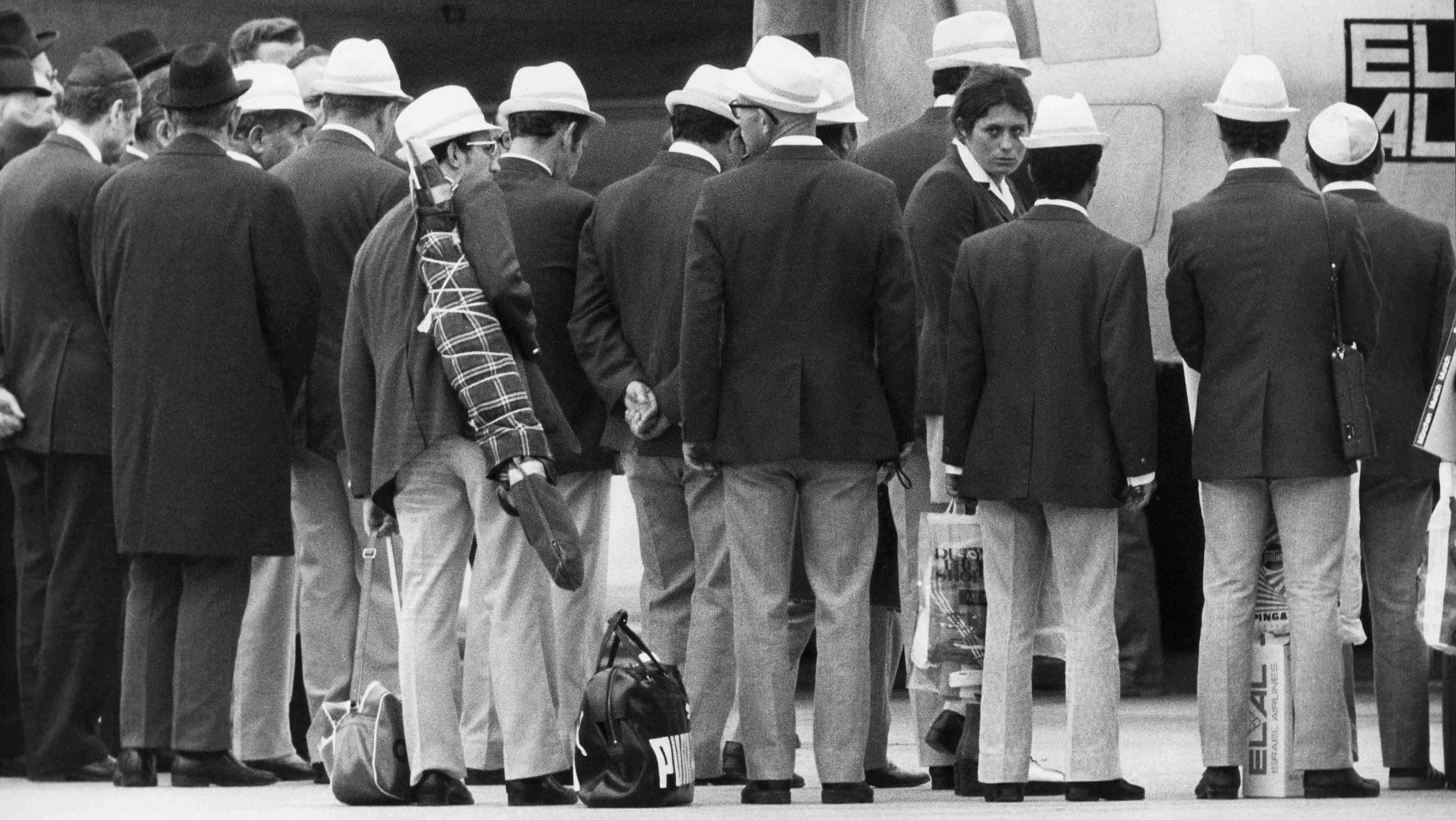Germany, Israel, and the International Olympic Committee are remembering the 11 Israeli athletes murdered by Palestinian terrorists at the 1972 Munich Olympics.
A memorial to the athletes killed was unveiled in the southern German city of Munich on Wednesday, with the 45th anniversary of the attack marked a day earlier.
New faces of terror
The 1972 Munich Olympics massacre was a decisive event that evolved global terrorism.
Hostage-taking on live global television was an inconceivable idea 45 years ago.
“I recall the terror attack of 1972 vividly, I had been at the Munich Olympics with my parents just a day before the attack,” German political scientist Professor Ludger Kühnhardt, director of the Center for European Integration Studies (ZEI), told CGTN.
Memories of the Holocaust still haunted Germany, which did not want to see more Jewish blood spilt on its soil.
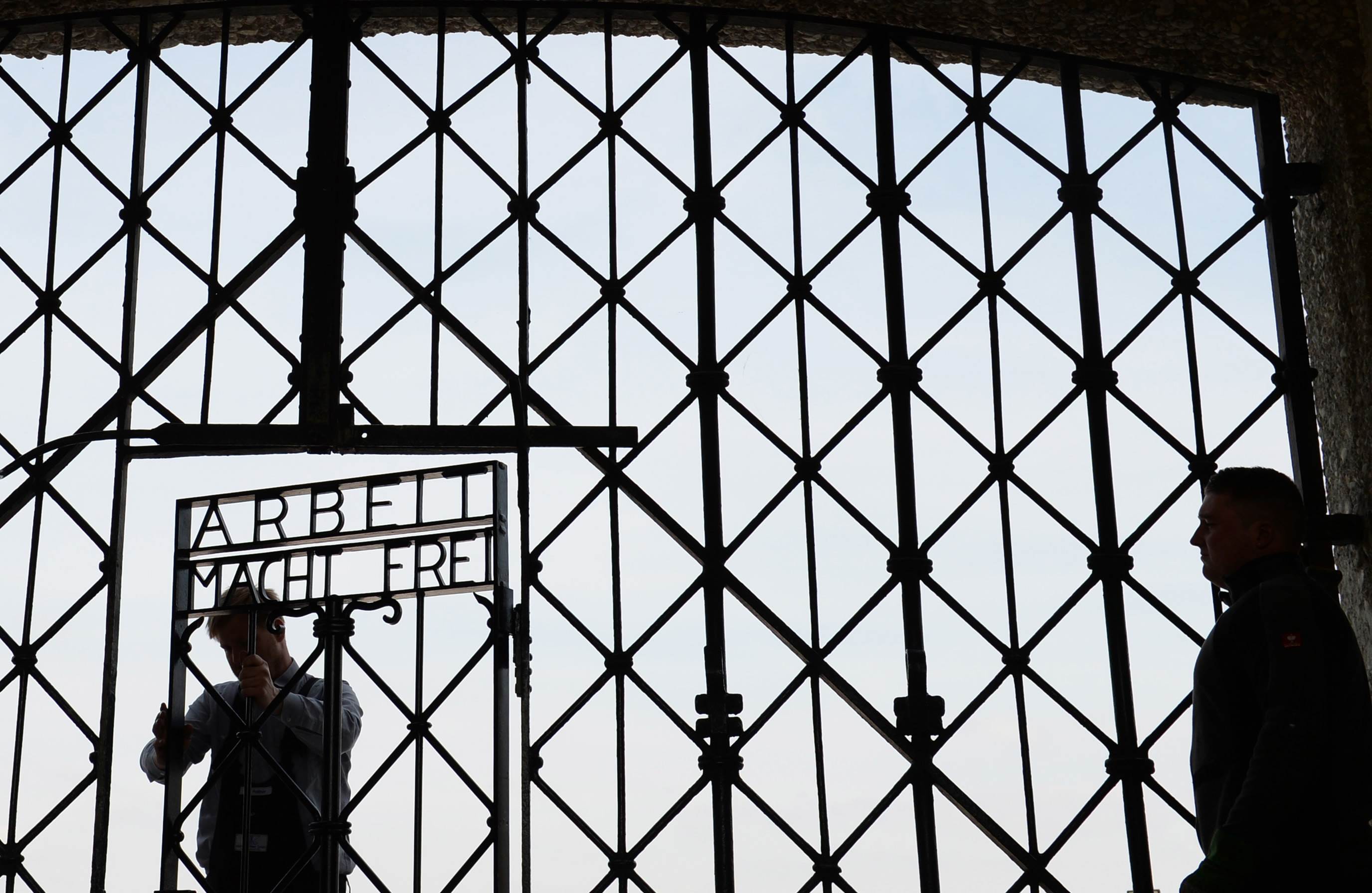
Workers fix the new entrance gate door with the inscription 'Work sets you free' (Arbeit macht frei) of former concentration camp in Dachau, southern Germany, on April 29, 2015. /AFP Photo
Workers fix the new entrance gate door with the inscription 'Work sets you free' (Arbeit macht frei) of former concentration camp in Dachau, southern Germany, on April 29, 2015. /AFP Photo
The Olympic Park was about 10 km away from the site of Dachau concentration camp. It was once the Oberwiesenfeld airport, where Neville Chamberlain arrived in 1938 to meet Adolf Hitler.
Black September
34 year later, 11 Israelis were taken hostage by the Black September Palestinian terror group on the same site.
Two were killed in the Olympic village, and the nine others were killed at the airport. A German policeman died in a shootout with the terrorists during a rescue attempt.
ABC Sports broadcaster Jim McKay announced in live coverage of the events, “Our worst fears have been realized tonight. … They’re all gone.”
Germany faced criticism for its botched rescue operation, after Israel claimed it had informed German authorities of security flaws before the games.
Security concerns
Israel made a secret government document public in 2005, revealing the Israeli Olympic delegation’s security concerns.
They discussed the lack of security at the athletes’ living quarters and were worried about the Sudanese team staying close by, as well as Palestinians employed in the Olympic village, the document said.
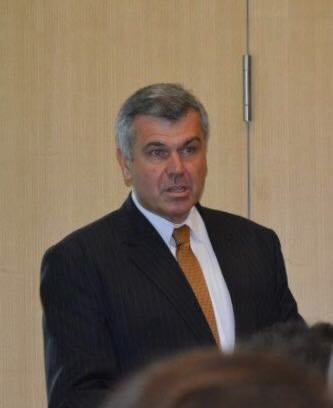
Professor Ludger Kühnhardt, director of the Center for European Integration Studies (ZEI) /Nadeem Gill Photo
Professor Ludger Kühnhardt, director of the Center for European Integration Studies (ZEI) /Nadeem Gill Photo
The German incompetence during the hostage crisis was absolute, wrote former Israeli intelligence officer Aaron Klein in his book "Striking Back."
Speaking of the events from 45 years ago, Professor Kühnhardt said, “The lesson always stuck in my mind: Terror destroys life and human happiness without reason. It is evil and inhuman.”
“Today, the whole world is fighting terrorism on a much larger scale. It has become almost a global weapon in the Third World War we are experiencing between human life and evil violence in asymmetric forms.”
European "gun control" law
Weapons are highly regulated in Europe, making it hard for militants and criminals to arm themselves. Guns are, however, available on the black market.
A teenage attacker killed nine people and injured 27 in Munich last year before shooting himself. A police investigation found that he obtained a gun and ammunition illegally through the black market.
The German-born attacker was identified as David Ali Sonboly, 18. Police said he was a deranged lone gunman obsessed with mass killings, and drew no inspiration from Islamist militancy.
Police arrested the gun seller in Marburg, some 100 km north of Frankfurt a year ago in a sting operation, contacting him on the so called “dark net” and posing as clients for a Glock 17 pistol and an automatic weapon for 8,000 euros (9,550 US dollars).
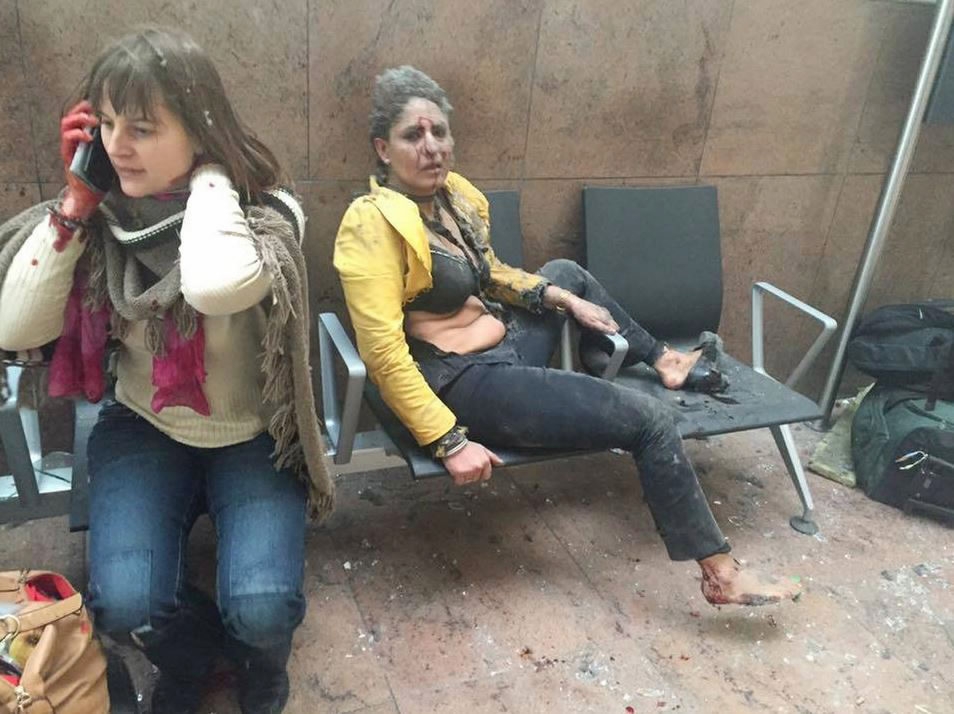
An injured woman looks on as another speaks on her mobile phone following twin blasts at Brussels airport in Zaventem on March 22, 2016 as part of coordinated attacks claimed by Islamic State group (ISIL) militants at the city's airport and in a Metro train. /AFP Photo/Ketevan Kardava /Georgian Public Broadcaster
An injured woman looks on as another speaks on her mobile phone following twin blasts at Brussels airport in Zaventem on March 22, 2016 as part of coordinated attacks claimed by Islamic State group (ISIL) militants at the city's airport and in a Metro train. /AFP Photo/Ketevan Kardava /Georgian Public Broadcaster
In a conversation with CGTN, German journalist and social ethicist Lars Schäfers said terrorism is still a real threat to Germany and Europe.
A series of deadly attacks have rocked the continent in the last 18 months.
A pop concert by US star Ariana Grande in the British city of Manchester on May 22, 2017, was the target of a suicide bombing, killing 22 people, including children.
A gunman in Munich opened fire in a crowded shopping center and restaurant on July 22, 2016, killing nine people.
Suicide bombers attacked Brussels airport and its metro network on March 22, 2016, killing 32 people and injuring 230.
A series of attacks in France have left more than 230 people dead since 2015.
Germany has not suffered an attack with mass casualties on the same scale as other European cities like Brussels, Nice and Paris.
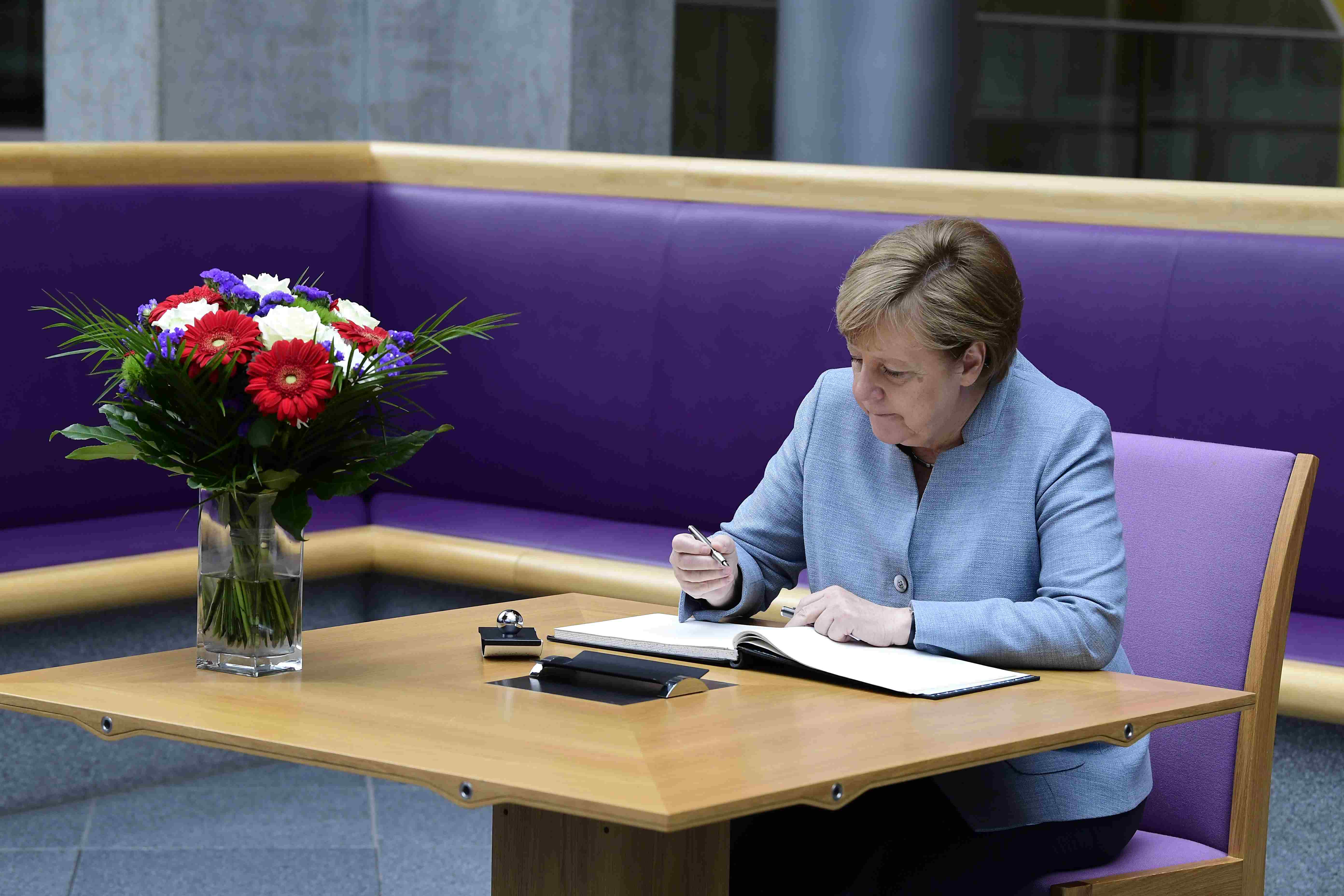
German Chancellor Angela Merkel writes a message in a book of condolence at the British embassy in Berlin, on May 24, 2017, following the terror attack at the Ariana Grande concert at the Manchester Arena in Manchester on May 22. /AFP Photo
German Chancellor Angela Merkel writes a message in a book of condolence at the British embassy in Berlin, on May 24, 2017, following the terror attack at the Ariana Grande concert at the Manchester Arena in Manchester on May 22. /AFP Photo
The country, Schäfers said, has learned a lot since 1972, and is well prepared to fight terrorism with the help of special anti-terror units.
Terror on wheels
But stopping the sale of weapons through the “dark net” is not as great a challenge as vehicles being driven into crowds – a common terror tactic, because automobiles are easy to acquire and such attacks are very difficult to detect in advance.
Europe has faced at least eight such attacks so far this year, resulting in dozens of deaths and injuries as vehicles were driven into pedestrians on busy streets.
Some of the deadly vehicle attacks since July 2016 include:
Thirteen people killed and more than 50 injured as a van drove down Barcelona's Las Ramblas on August 17, 2017.
Three attackers drove a van into pedestrians on London Bridge on June 3, 2017, before stabbing nearby civilians. 11 people including the attackers were killed and 48 injured.
Five people were killed and 14 injured after a lorry was driven into crowds in Stockholm on April 7, 2017.
Five people were killed and 49 wounded in a car attack on Westminster Bridge in London on March 22, 2017.
A lorry hit pedestrians at a Berlin Christmas market, killing 11 people and injuring 56 on December 19, 2016.
An attack on Bastille Day celebrations in Nice, France on July 14, 2016, was the worst of all vehicle attacks in Europe: 87 people were killed and 458 injured.
Memorial to victims
Germany is wary of terror threats, and as it opens a memorial to the Israeli athletes killed at the 1972 Munich Olympics, it reaffirms its commitment to securing peace, said Schäfers.
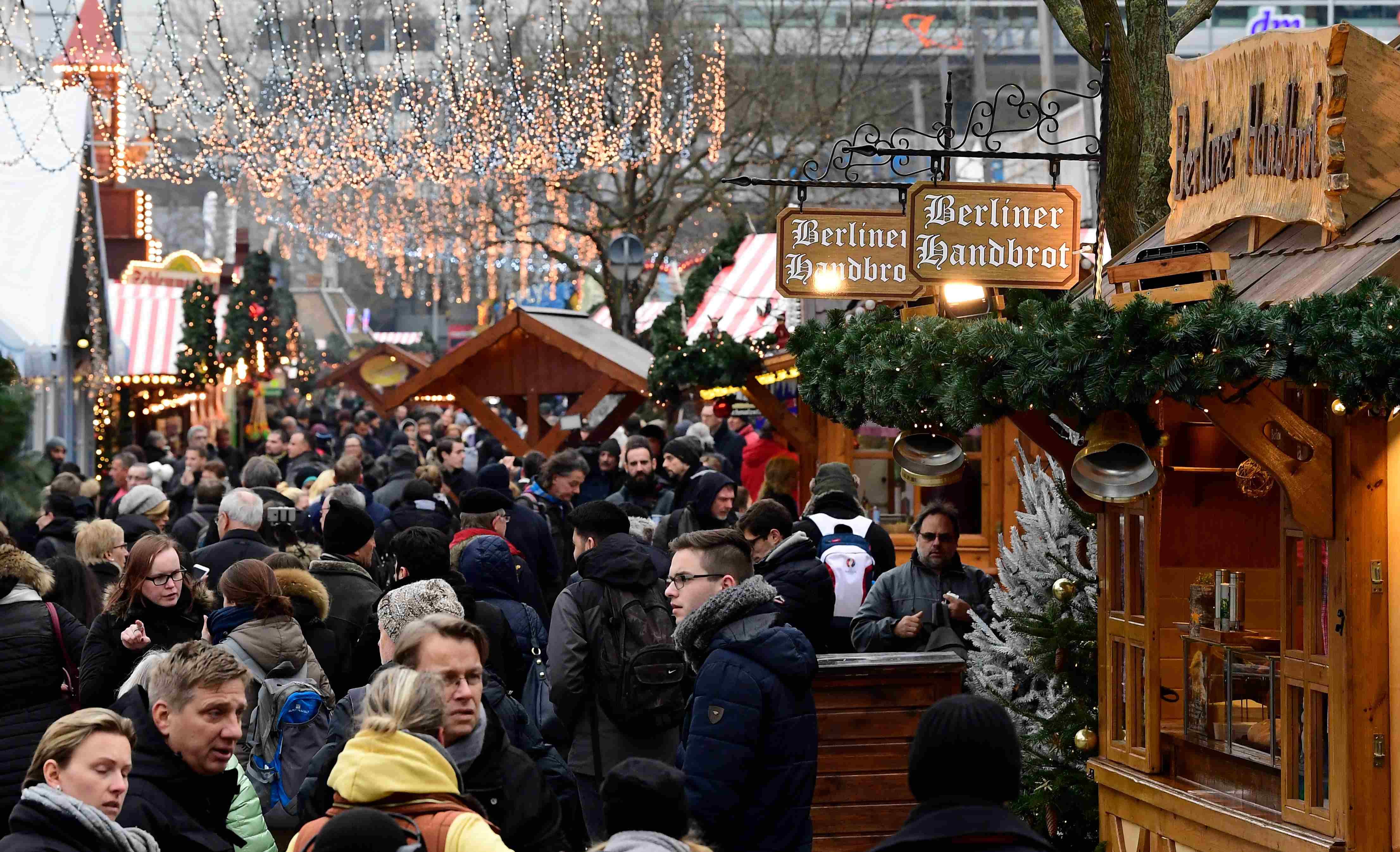
People walk between booths at the Christmas market near the Kaiser-Wilhelm-Gedaechtniskirche (Kaiser Wilhelm Memorial Church) in Berlin on December 22, 2016. The Berlin Christmas market that was struck by a deadly truck rampage. /AFP Photo
People walk between booths at the Christmas market near the Kaiser-Wilhelm-Gedaechtniskirche (Kaiser Wilhelm Memorial Church) in Berlin on December 22, 2016. The Berlin Christmas market that was struck by a deadly truck rampage. /AFP Photo
"There have always been two modest memorials, a sculpture by the German artist Fritz Koenig and a plaque outside the apartment where the hostages were held; but the new memorial takes a completely different approach," said the International Olympic Committee on its website.
Israeli President Reuven Rivlin attended the ceremony in Munich on Wednesday. His German counterpart, Frank-Walter Steinmeier, invited him to mark the event.
“45 years after the massacre, international terror continues to threaten and harm innocent civilians,” Rivlin was quoted in Israeli media as saying.
“There are some who still see the massacre of these athletes as a heroic act.”
“The center we’re inaugurating must send a message to the entire world: It’s forbidden to be forgiving toward terrorism”, he said.

